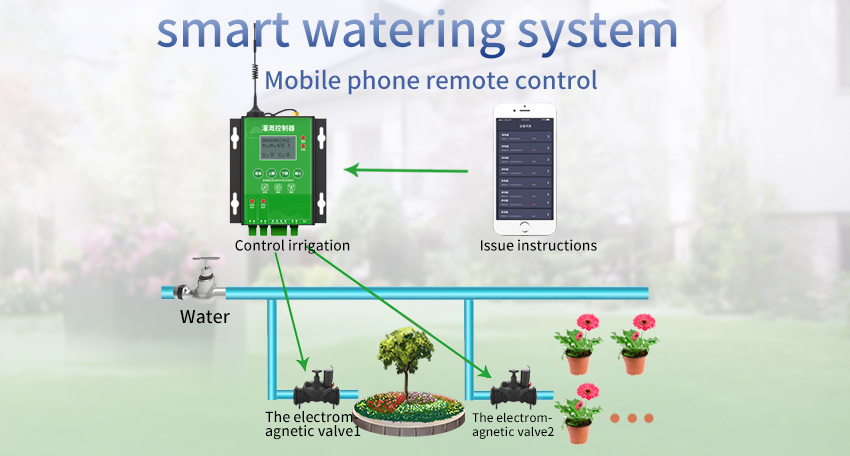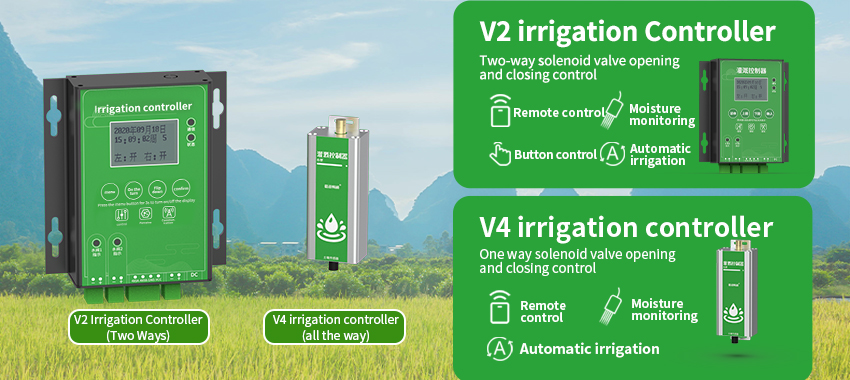Smart Irrigation
Smart irrigation is a type of irrigation system that uses advanced technology to control and manage water distribution in gardens and landscapes. These systems are able to detect soil moisture levels, weather conditions, and other factors to determine how much water is needed and when to irrigate. This results in a more efficient and sustainable way of watering your garden, which can bring multiple benefits.

One benefit of smart irrigation is improved water efficiency. With traditional irrigation methods, water can be wasted due to overwatering or sprinkler malfunction. However, with a smart irrigation system, water is only distributed when it is needed, reducing the chances of overwatering or waste. Additionally, smart irrigation systems are often programmable, allowing homeowners to set timers and specific irrigation schedules based on the weather and other factors. This can help reduce water waste and save money on water bills.
Another benefit of smart irrigation is improved plant health. With a smart irrigation system, plants receive the exact amount of water they need, ensuring that they stay hydrated and healthy. This can lead to healthier plants that are less likely to experience disease or pest problems. Additionally, smart irrigation systems can be designed to distribute water only where it is needed, helping to reduce competition for water among plants and ensuring that all parts of the garden receive adequate water.

A third benefit of smart irrigation is increased convenience. With a smart irrigation system, homeowners can set up automated irrigation schedules and forget about watering their garden for days or weeks at a time. This can free up time for other activities and reduce the amount of maintenance required to keep a garden healthy and beautiful. Additionally, smart irrigation systems are often designed to be easy to install and operate, making them an ideal solution for homeowners who lack time or technical knowledge.

One example of a smart irrigation system is the soil moisture sensor, which can be installed in the ground to measure soil moisture levels. The sensor transmits data to an irrigation controller, which can then adjust the irrigation schedule based on the sensor’s readings. This helps to ensure that the garden receives the exact amount of water it needs and reduces the chances of overwatering or underwatering.
Another type of smart irrigation system is the weather-based irrigation controller, which uses local weather data to determine how much water is needed and when to irrigate. These controllers can be programmed to take into account factors such as temperature, rainfall, and humidity to determine the ideal irrigation schedule for each day.
Smart irrigation systems can also be integrated with other smart home devices, such as smartphones, tablets, and computers. This allows homeowners to remotely monitor and control their irrigation system, adjust irrigation schedules, and receive alerts when their garden needs watering.
Despite the benefits of smart irrigation systems, they also have some drawbacks. One issue is the initial cost of purchasing and installing a smart irrigation system. These systems can be more expensive than traditional irrigation methods, and installation may require professional help. However, many smart irrigation systems are designed to last for several years or even decades, which can offset the initial cost over time.
Another potential issue with smart irrigation systems is that they rely on electrical power to operate. If your battery-powered system does not have enough juice, it won’t be able to properly irrigate your garden. Additionally, some smart irrigation systems are programmable, which can lead to user error if the wrong settings are entered. However, most modern smart irrigation systems have safeguards in place to prevent incorrect programming by the user.
I am extremely inspired along with your writing talents as smartly as with the layout in your blog. Is this a paid theme or did you customize it yourself? Anyway keep up the nice high quality writing, it is uncommon to see a great blog like this one nowadays!